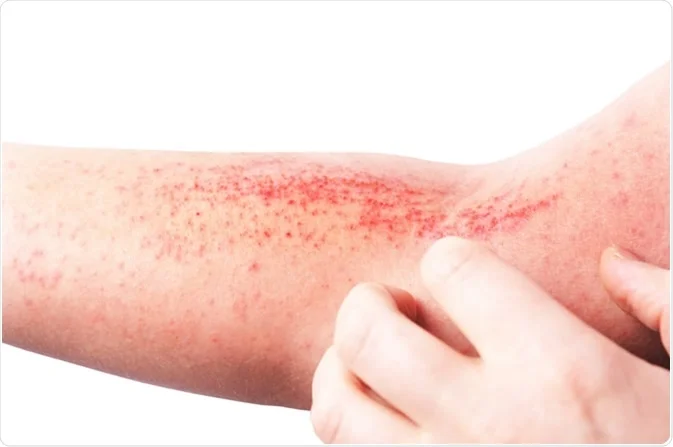Written by Dr. Ringpfeil

Atopic dermatitis, commonly known as eczema, is a chronic and highly itchy skin condition that can affect individuals of all ages. It is most commonly seen in children and is associated with a family history of asthma, seasonal allergies, and penicillin allergy. While some people may outgrow atopic dermatitis, others may continue to experience flare-ups into adulthood.
Actinic keratoses occur on sun-exposed skin and can manifest as single or multiple lesions. Signs and symptoms include rough or scaly, flat or slightly raised bumps that range in color from red to brown. The affected area may occasionally itch, burn, or feel tender. Diagnosis is typically made through a professional examination, and in some cases, a skin biopsy may be necessary to confirm the diagnosis.
During active episodes of atopic dermatitis, topical steroids are often required to control the condition. However, prolonged use or the use of steroids to prevent flare-ups should be avoided. Typically, a two-week course of topical steroids is sufficient to alleviate a flare. Itching can be managed with oral antihistamines, and severe widespread flares may require a short course of oral steroids (prednisone).
Proper daily skincare is crucial for managing atopic dermatitis. After bathing, it is important to generously apply moisturizer and use gentle soap with cooler water. Avoiding irritating fabrics, such as wool, can also be beneficial. In some cases, food allergies may contribute to the condition, and an evaluation by an allergist may be necessary.
Flares of atopic dermatitis can be triggered by extreme heat or cold, rapid temperature changes, and excessive sweating. Therefore, maintaining a suitable temperature without excessive humidity or dryness is ideal. Clothing made from breathable, non-irritating materials should be worn and washed with fragrance-free and dye-free detergent, followed by thorough rinsing. Dryer fabric softener sheets should be avoided.
Excessive bathing should be avoided as it can strip the skin of its natural oils. It is important to use gentle soap, cool water, and moisturize regularly to prevent dry skin. Bubble baths should be avoided as they can be drying to the skin.
Stress can also trigger atopic dermatitis. Sufficient rest and proper stress management techniques, such as professional guidance or relaxation exercises like yoga, can be helpful.
Seeking medical attention at the early onset of symptoms can help prevent widespread flare-ups.
Patients ask Dr. Ringpfeil answers
Please feel free to use this form to ask our dermatologists questions about this treatment.